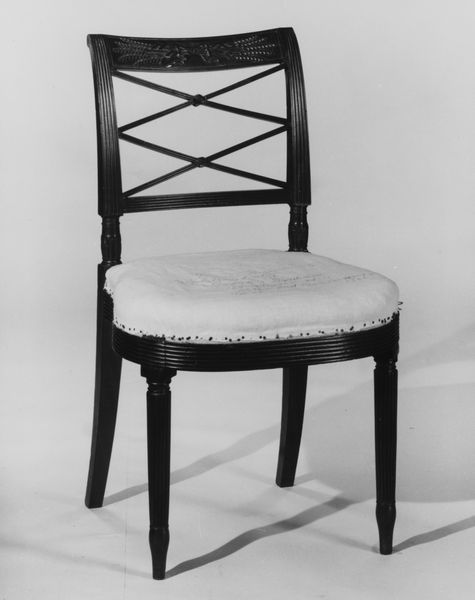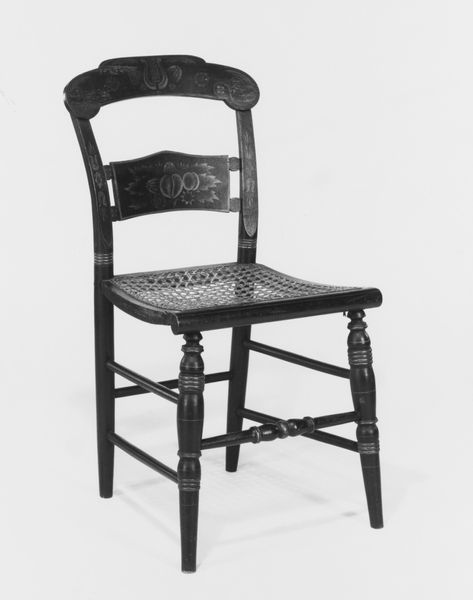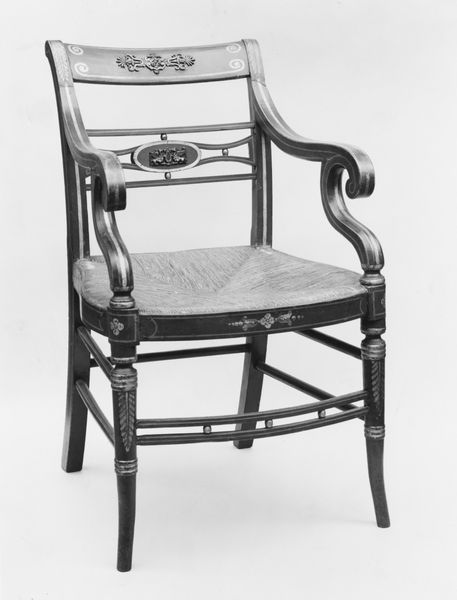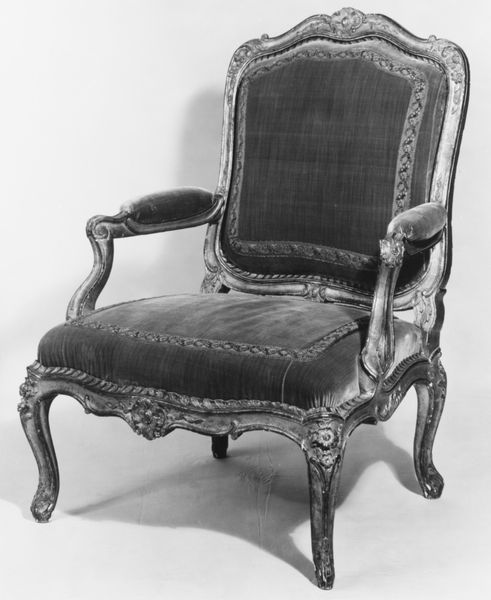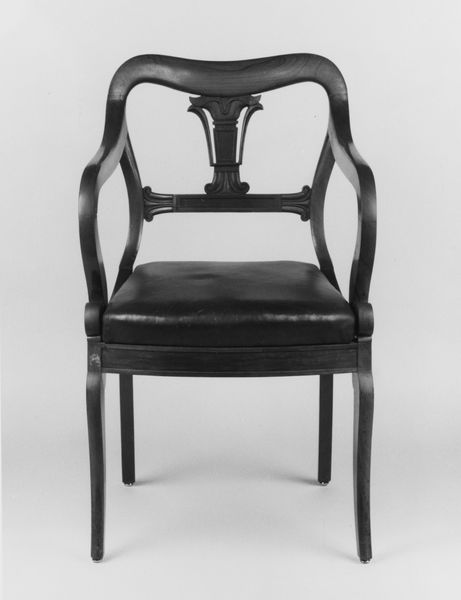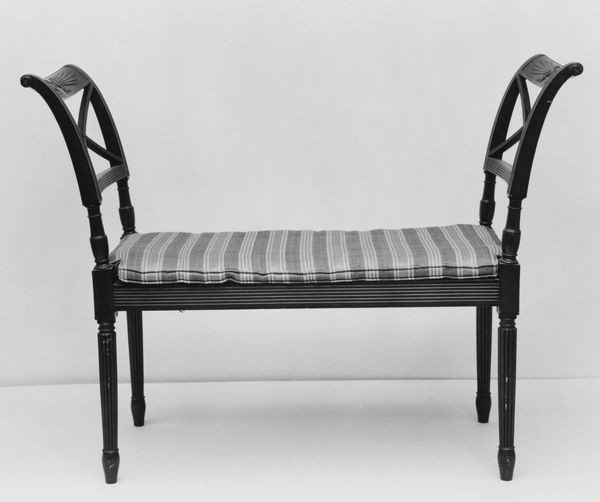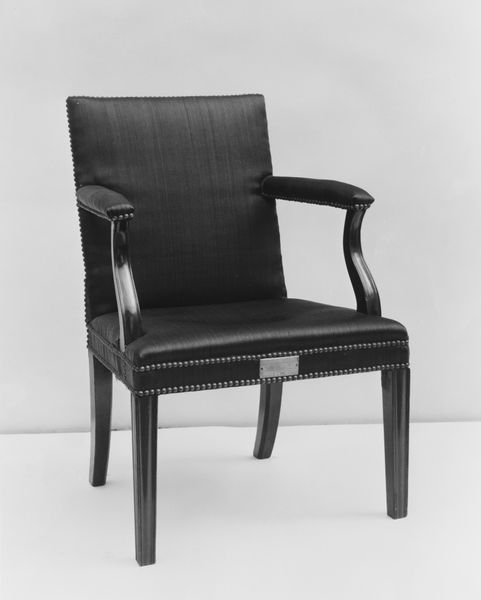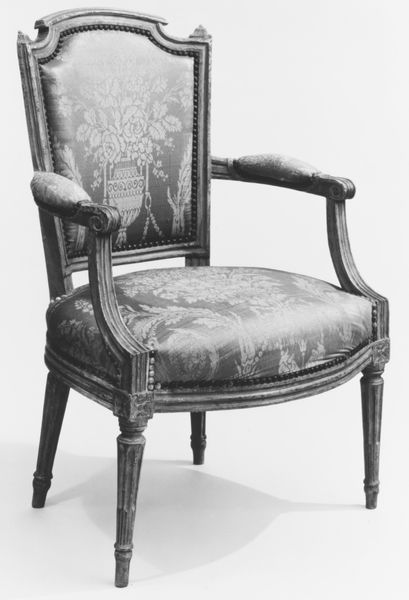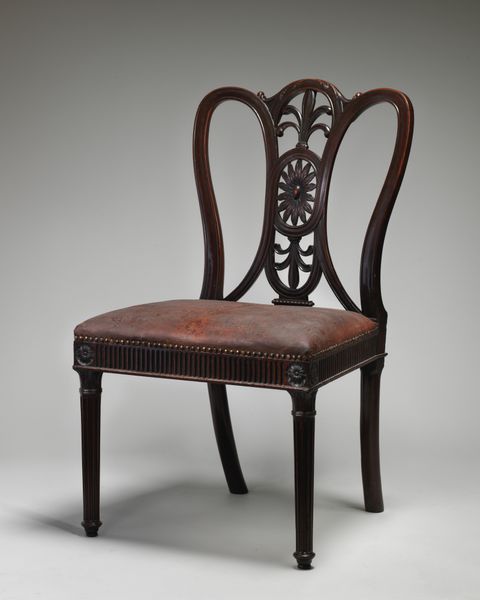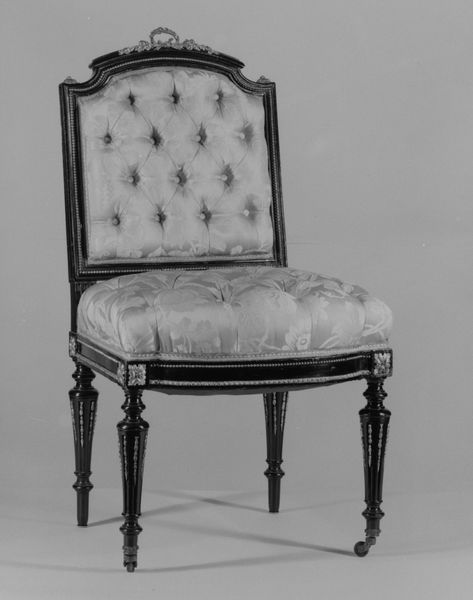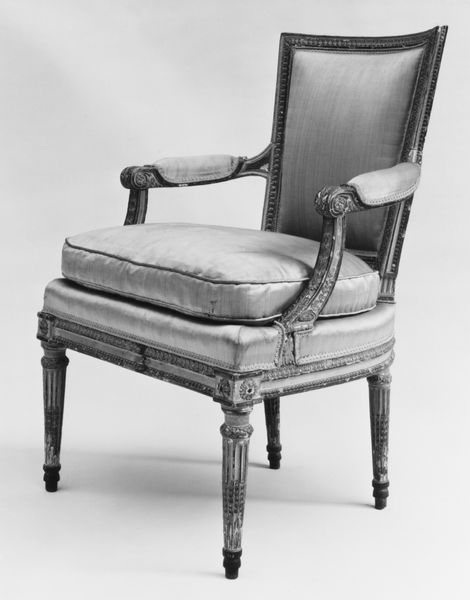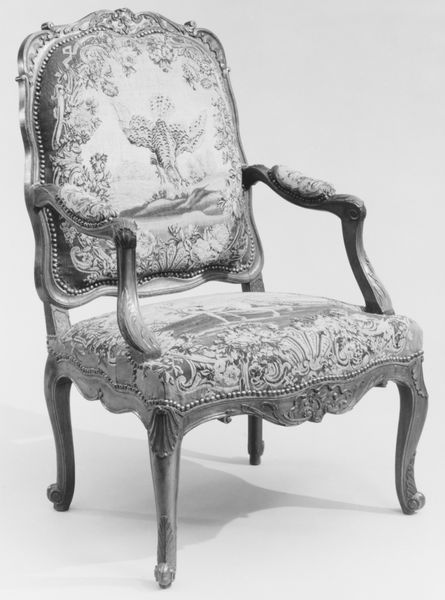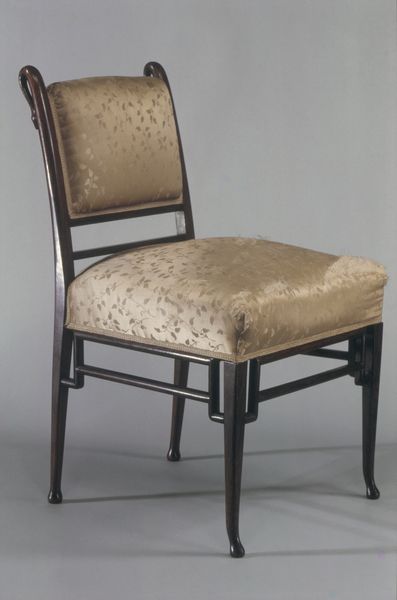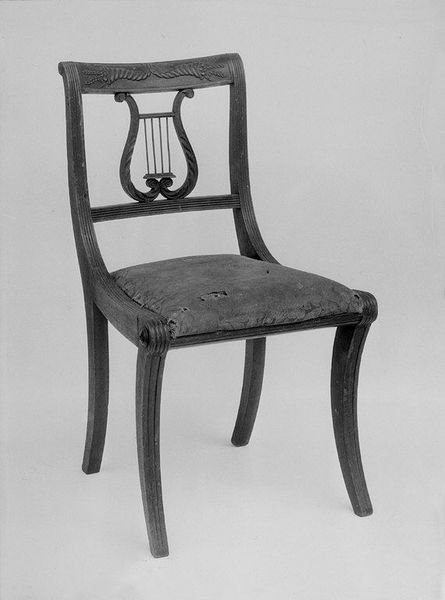
carving, sculpture, wood
#
neoclacissism
#
carving
#
furniture
#
sculpture
#
united-states
#
wood
Dimensions: 32 1/8 x 17 5/8 x 18 1/2 in. (81.6 x 44.8 x 47 cm)
Copyright: Public Domain
Editor: This is Duncan Phyfe's "Side Chair," crafted between 1822 and 1825 from wood. It’s a great example of American Neoclassical furniture, very elegant with its curved lines and refined carving, but something about it feels almost severe. How do you interpret this work in light of its historical context? Curator: Absolutely. It's critical to remember that Neoclassical style in America wasn't just about aesthetics; it reflected deeply held social and political aspirations. While Phyfe created furniture for wealthy elite, the clean lines and restrained ornament also embody Republican ideals. How does this tension between luxury and republicanism manifest in the chair's design, do you think? Editor: I see what you mean! The craftsmanship is undeniably high-end, but there's a simplicity that perhaps mirrors democratic values, it shuns overt displays of excessive wealth like, say, the French aristocracy. So, it's trying to communicate status, but in a uniquely American way? Curator: Exactly. The chair becomes a loaded signifier within early American society. Can we even consider the exploitation that allowed such craftsmanship to thrive during that period? Were those artisans, like the enslaved people, given credit for their contributions, or were they just cogs? Editor: That brings up a critical point about whose labor created this beauty, it adds a troubling layer. Thinking about the chair now, it represents privilege, erasure, and the complex negotiations of identity within early America. Thank you for making me consider its deeper context. Curator: That's the power of examining design through an intersectional lens: understanding the chair’s beauty and grappling with its complex history!
Comments
No comments
Be the first to comment and join the conversation on the ultimate creative platform.
